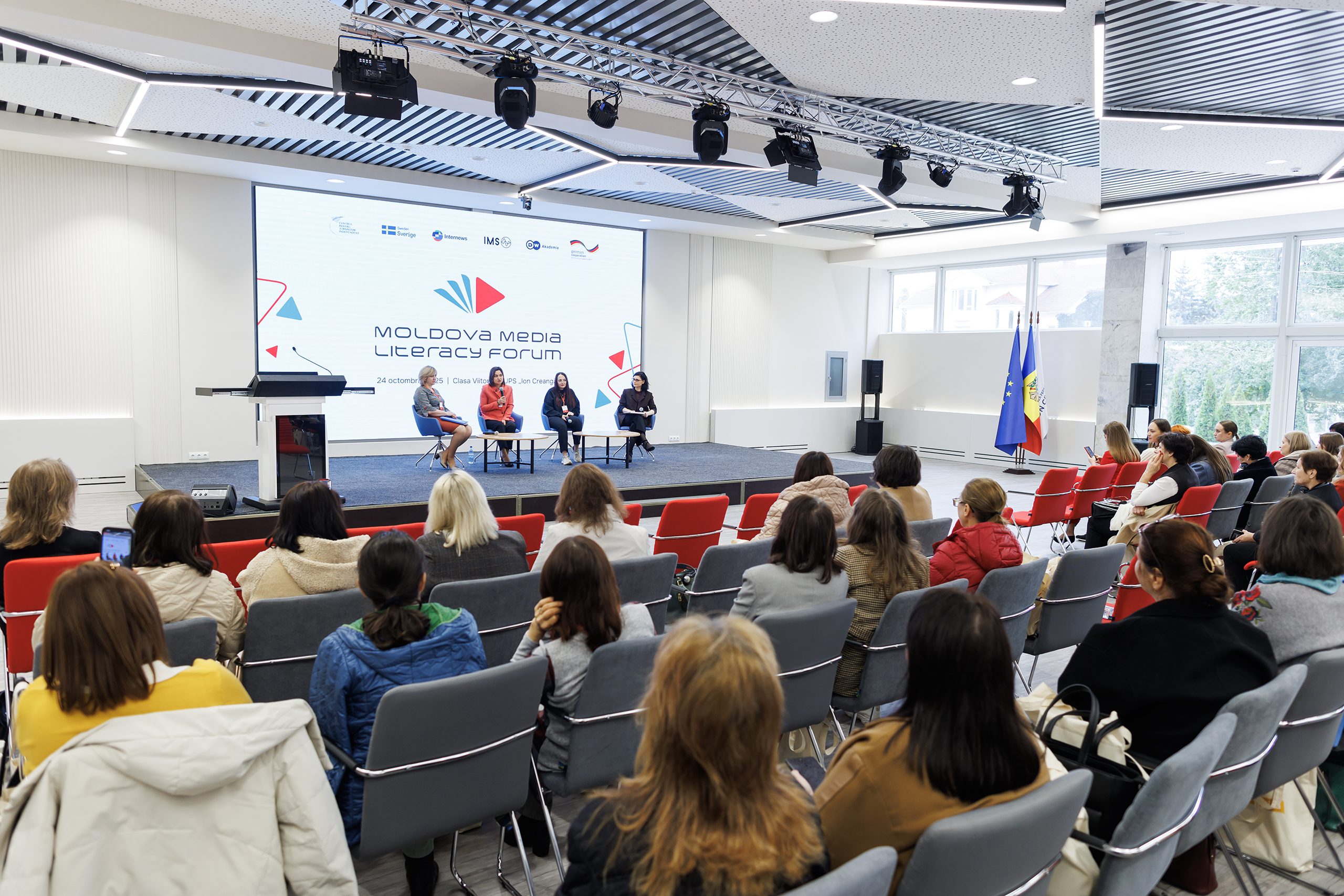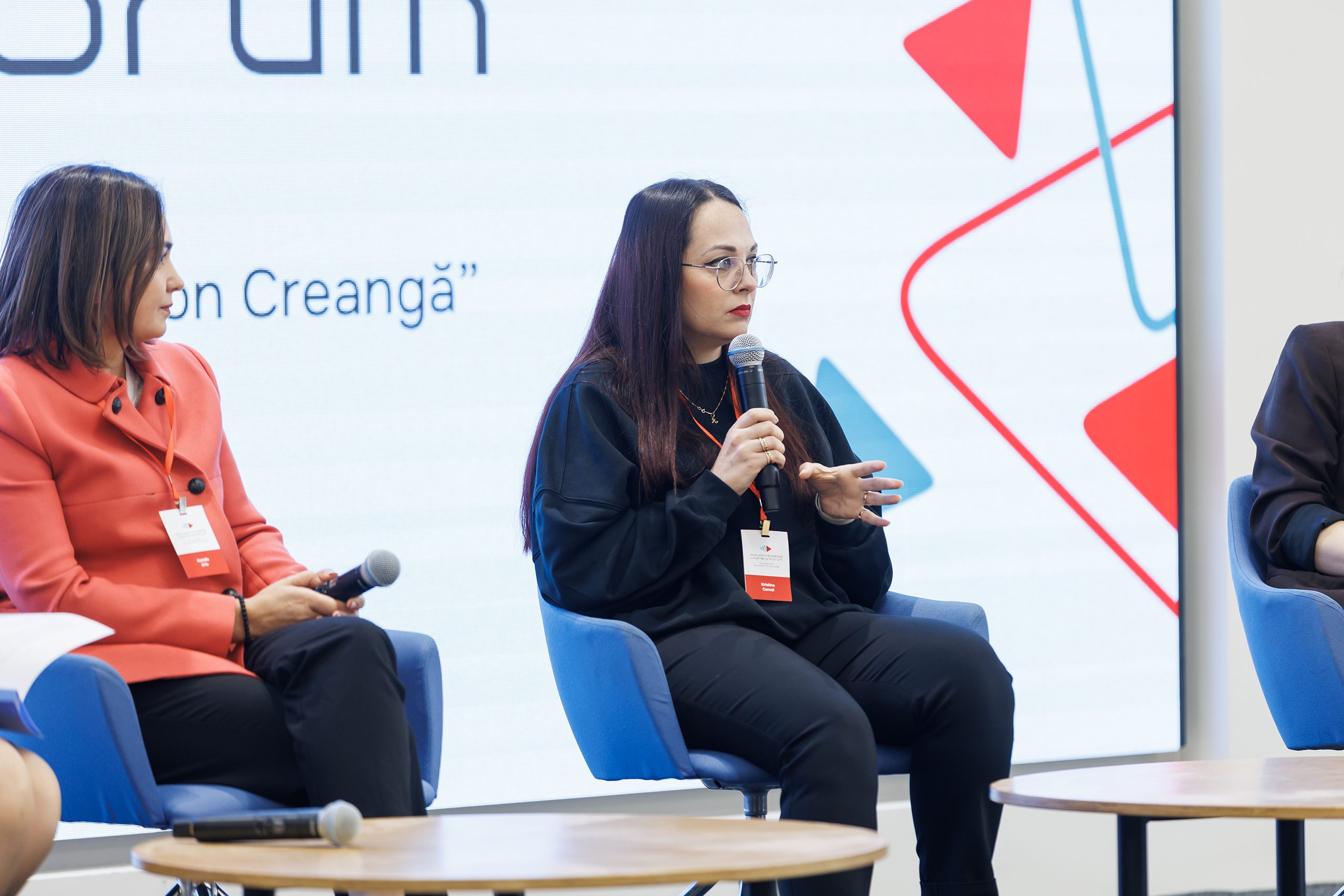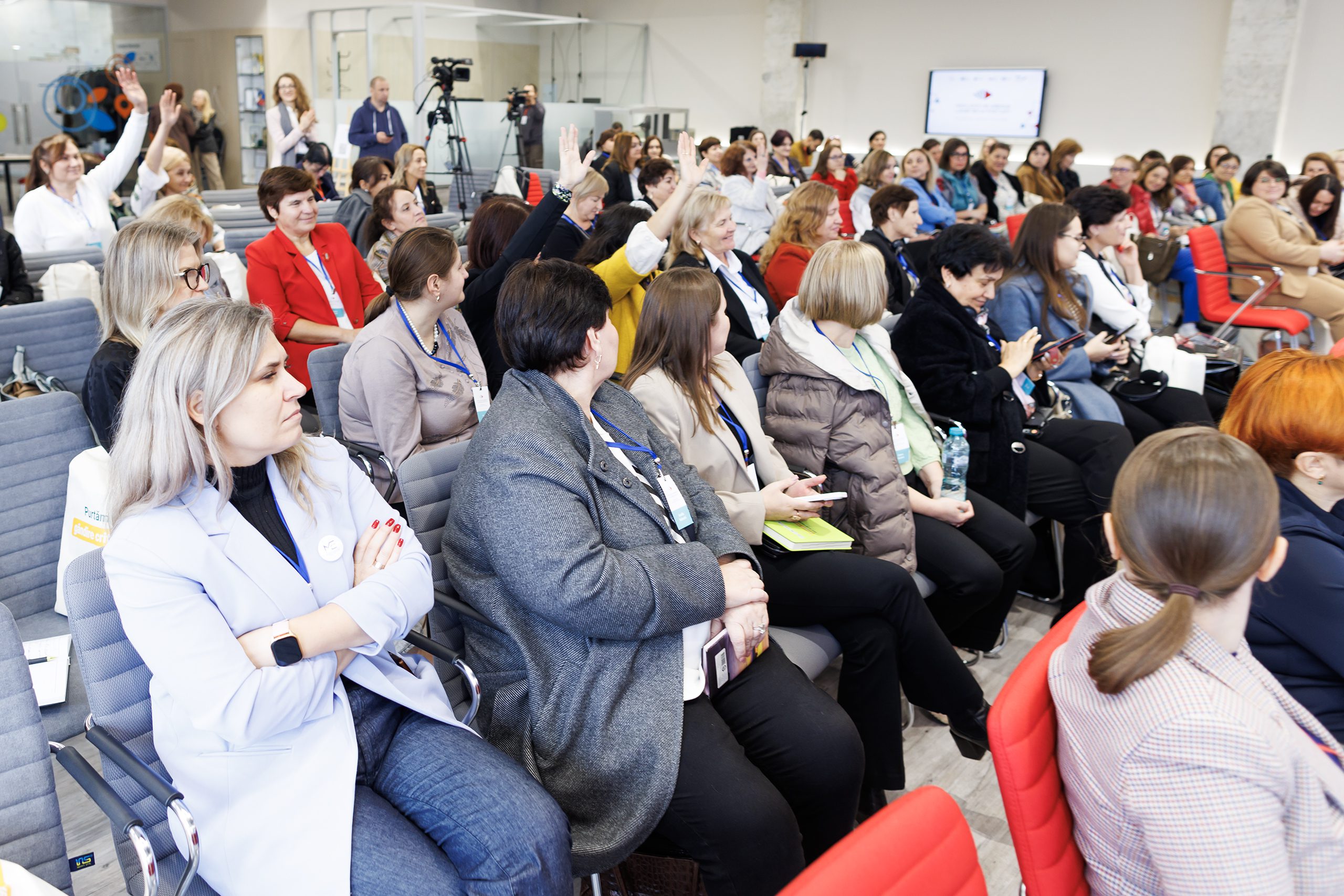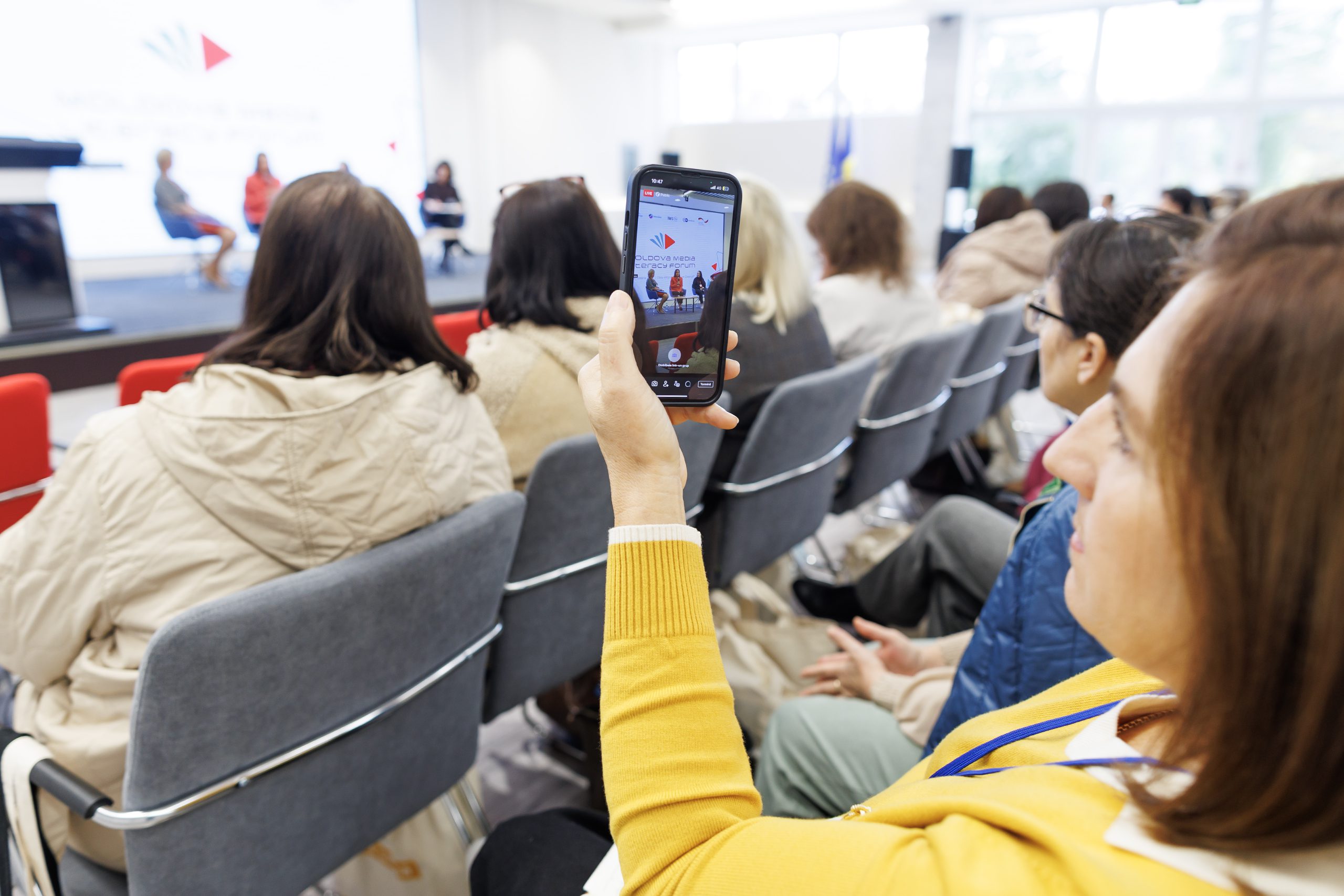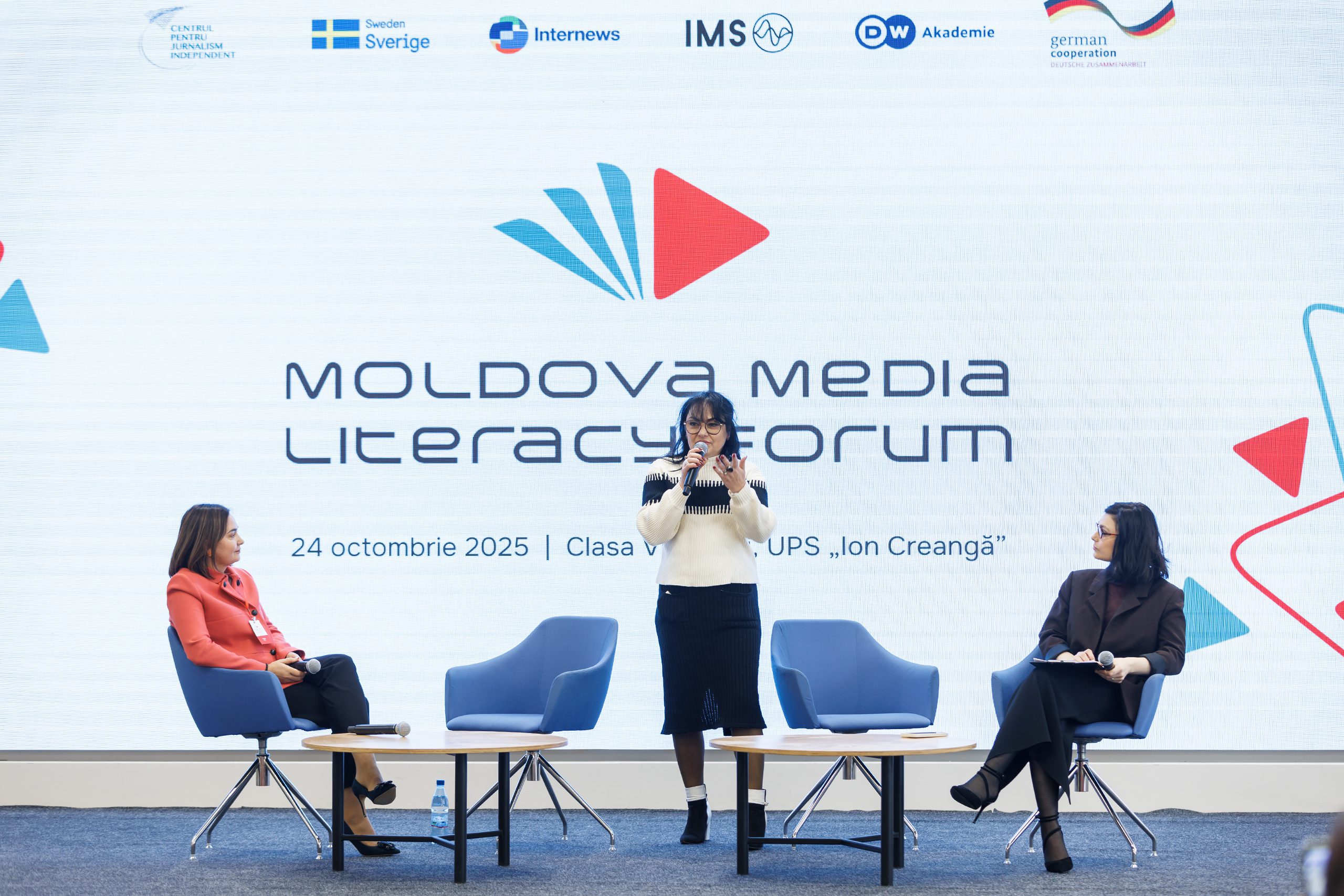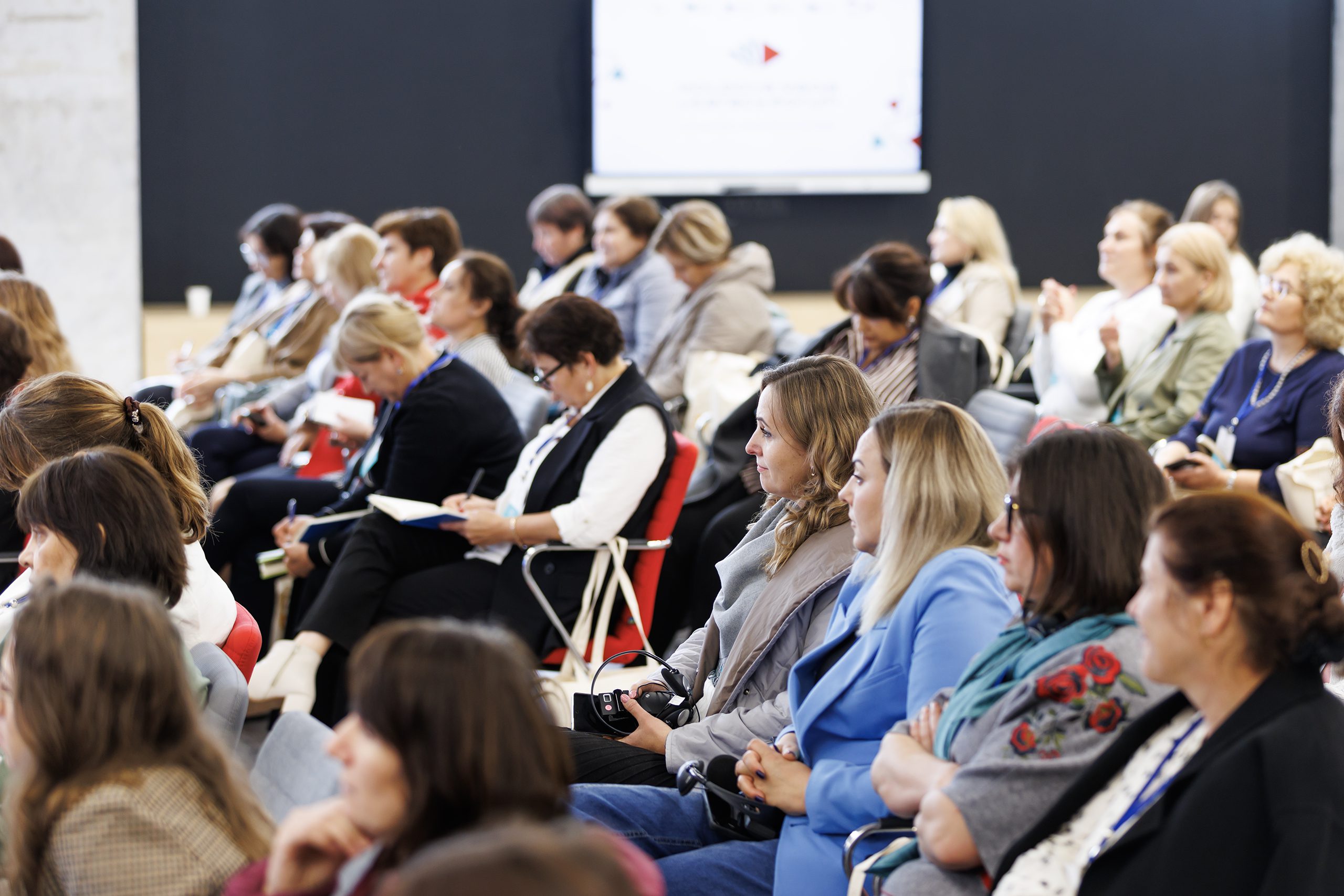Media education enhances the teaching-learning process across school subjects
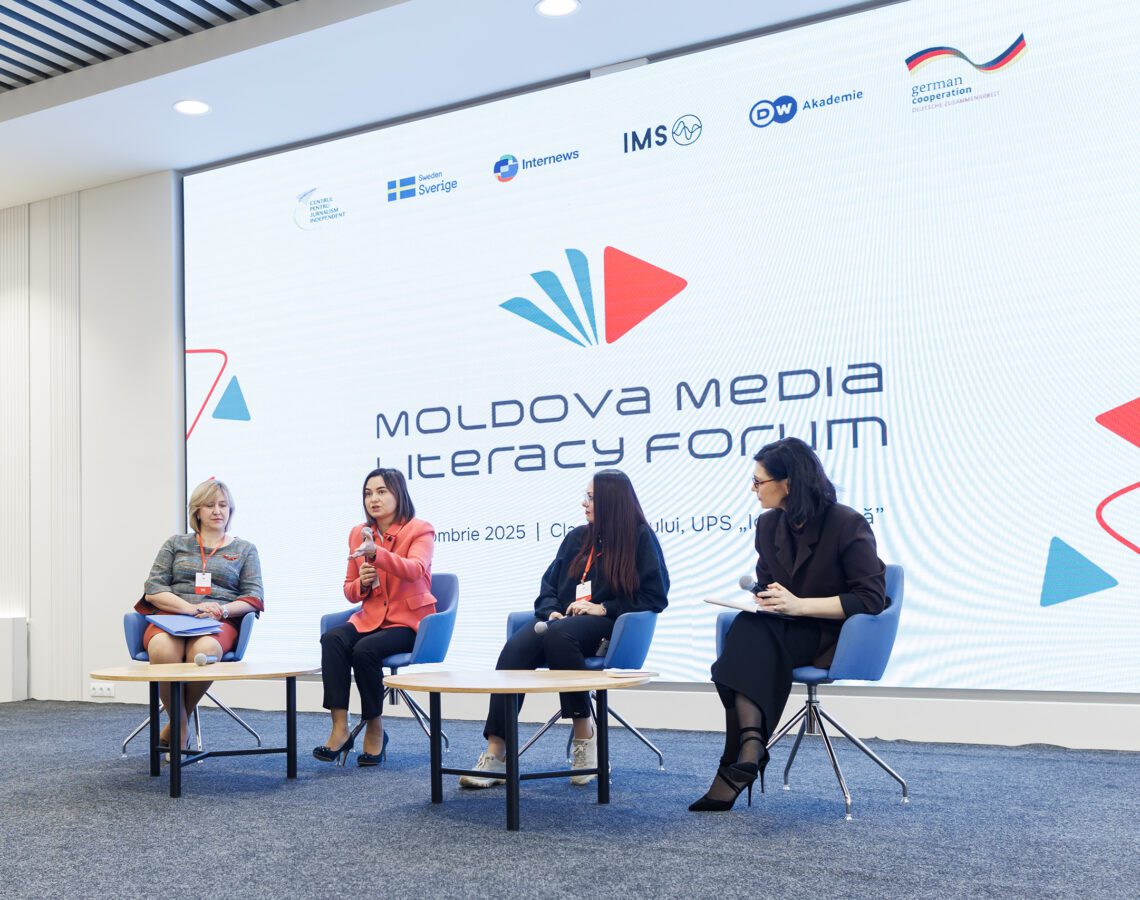
Integrating media education across all school subjects is becoming a necessity, not merely an option. This was one of the main conclusions of the third edition of the Media Education Forum 2025, held in Chisinau, where teachers, experts, and representatives of public authorities discussed the experiences, challenges, and perspectives of media education development in the Republic of Moldova.
During the session “Integrating Media Education into Core Subjects”, Natalia Grîu, expert and trainer in Media Education, emphasized the importance of developing media competences in schools.
“Today we openly discuss the need to integrate media education into core school subjects. I remember that a few years ago, when we started developing the curriculum for the Media Education subject, integration was the next natural step. Over time, thanks to the efforts of civil society, people have come to understand how essential it is to be able to work with information. This is a life skill, an integrative competence needed by every teacher, whether they teach mathematics, foreign languages, biology, or chemistry”, said Grîu.
She added that media education “helps us cope with the challenges of the world we live in a world of information and human relations, not just objects”.
“We are now in the third year of piloting media education in two core subjects. We have developed a methodology for integrating media education concepts into Romanian and English language classes. The participating teachers have created lesson plans based on a bottom-up approach, starting from students’ experiences. Evaluation questionnaires show a significant increase in students’ ability to analyze information, distinguish between fact and opinion, and understand what a news is. Media education makes the teaching-learning process more effective across different school subjects”, Natalia Grîu concluded.
Daniela Tîrsînă, Senior Consultant at the General Education Policy Department of the Ministry of Education and Research, spoke about the evolution of the regulatory framework and the need for transversal integration of media education.
„We started with Media Education as an optional subject, but we have now reached a point where it is no longer an option, but a necessity. We have all the prerequisites to act in this direction – an international framework reflected in the national one, and a favorable context offered by the European integration agenda”, said Daniela Tîrsînă.
She emphasized that, in the process of developing the new school curriculum launched recently, curriculum experts have been trained on how to integrate media education into their subjects. “If you are an open-minded teacher to innovation, you can integrate media education concepts into any subject – from foreign languages to mathematics, history, or science. For instance, in history we can analyze propaganda and disinformation; in mathematics we can interpret statistical data from news reports and identify numerical manipulation; and in geography we can analyze how media describe natural phenomena. Media education has its place in every subject – through critical analysis, creativity, and openness to new ideas”, she noted.
Cristina Cernei, English teacher at “Onisifor Ghibu” Theoretical High School in Chisinau, shared her experience of integrating media education elements into English language teaching. “Personally, it was easy for me to apply an integrated approach to media education in English lessons. There is a wealth of online content that can be discussed in every class, and students are genuinely interested in current topics – even when they don’t always align with my own interests. The teacher’s role is to teach students to always ask themselves Why?”, she said.
She concluded with a message to teachers. “Our creativity matters a lot. I encourage teachers to assign students tasks that involve creating video content on various topics. If, in the process of searching and analyzing information, students develop the ability to create empathetic and tolerant content, then we will be develop more responsible and engaged citizens,” said Cernei.
During the session “Innovative Tools in Media Education”, discussions focused on the importance of innovative ways to promote media education – through digital tools and theatre.
Natalia Grîu, co-author of the Media Education Digital Textbooks, highlighted that digital manuals are more engaging than printed ones. “They integrate multimedia extensions, videos, and interactive exercises. Teachers can work with materials that are closer to students’ interests, incorporating gamification and interactivity. We sought a balance between static tasks and those that stimulate critical information analysis. The textbooks are a real support for both students and teachers,” Natalia Grîu explained.
Gabriela Lungu, Director of the “Guguță” Municipal Puppet Theatre, spoke about the impact of the educational performance PikPok.online@guguță, which has reached over two thousand children, including those from rural areas.
“When we launched this initiative in collaboration with the Independent Journalism Center, we didn’t expect such an impact. After each performance, we talk with the children, and their reactions always surprise us. The new generations are far more perceptive – they understand things instantly. The idea behind the show was to demonstrate how easily fake content can be created on screen. At the same time, we wanted to convey the message that behind the screen there may be someone you don’t know, who could pose a real threat. It is essential for children to be aware of these risks and to develop critical thinking skills to navigate the dangers of the digital environment”, Gabriela Lungu concluded.
The third Media Education Forum brought together around 100 participants: teachers, librarians, local and foreign experts, authorities, representatives of partner organizations, etc. The event, organized by the IJC every two years, facilitates the exchange of opinions and ideas, providing an opportunity to analyze trends and perspectives in the field.
The third edition of the Media Education Forum was organized by the Independent Journalism Center as part of the projects “Media Literacy Advancement and Support to Moldovan Media,” supported by Sweden and implemented by Internews, “Advancing Information and Media Literacy – Phase II,” implemented by International Media Support (IMS) with financial support from the Danish government, and “Strengthening Media Education Skills in the Republic of Moldova: Piloting an Integrated Approach in Formal Education,” implemented in partnership with Deutsche Welle Akademie and with the support of the German Federal Ministry for Economic Cooperation and Development (BMZ).
![]()



